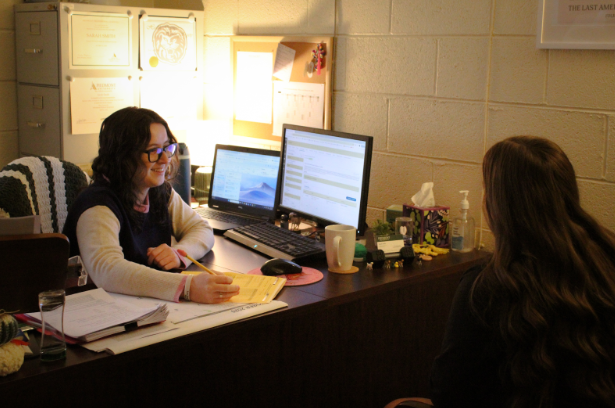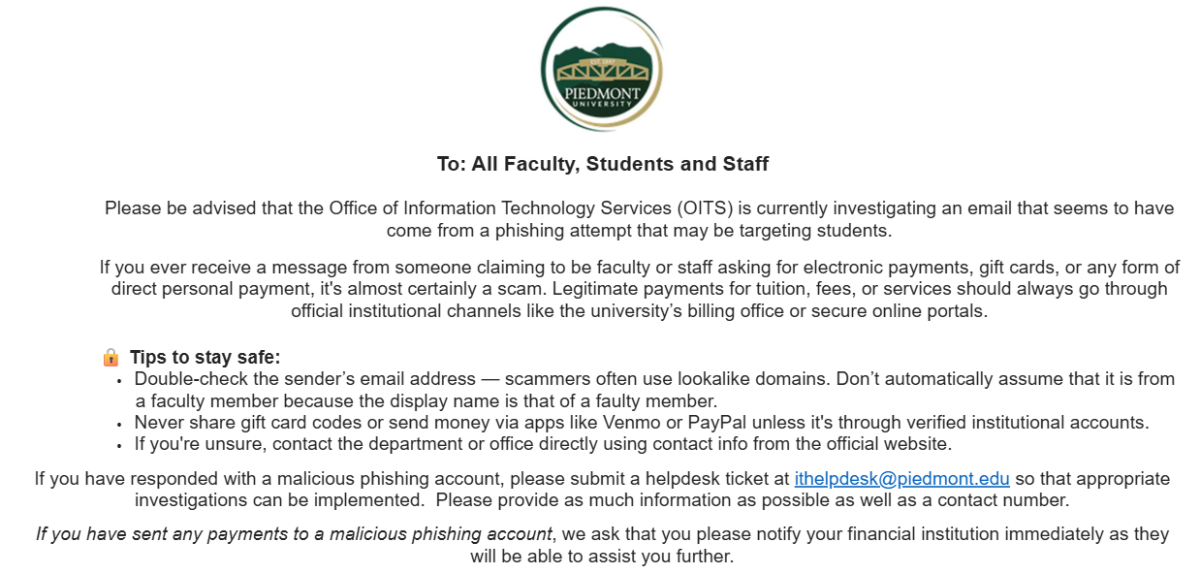
It only takes 21 days to form a habit and in Texas, it takes about 35 days to become licensed as an Emergency Medical Technician. In contrast, the federal government has proven it takes longer than 35 days to reopen and return to its constitutional duties to serve the citizens of the United States.
As of Jan. 24, the federal government has been shut down for 35 days and counting after what began at midnight of Dec. 22, as a showdown over congressional funding for a border wall. Until the government reopens, over 800,000 federal employees who are deemed “non-essential personnel” are having their pay withheld. Of those, more than 420,000 of them are working without pay. Because the shutdown has lasted over a month, many are beginning to face the real-world effects of not being paid. For many, rent is due at the beginning of the month and food has to be put on the table every day. Without a paycheck, affording these necessary expenses may prove impossible.
For some Piedmont students, the government shutdown hits close to home.
“Currently, I only have temporary residency and I applied for permanent residency,” said one Piedmont student who wished to remain anonymous. “I may be forced to leave the country and have to return to Honduras because my temporary residency expires this June.” She added that this adds to her level of stress of being a full-time student because her ability to remain in the country is in question.
All non-essential personnel that work in divisions of the State Department and The Department of Homeland of Security are furloughed, which means immigration and foreign travel visas are on hold until the government reopens. For Piedmont students going on Maymesters who have yet to receive their passports, this could result in their inability to go on the trip.
“It could mean I would have to place my education on hold,” she said. “I don’t have a place to live if I’m forced back to live in Honduras, I don’t have a job (there), and most of all I would be separated from my husband.”
For other students whose parents work for the government, their ability to pay for their education this semester hangs in the balance while they worry about their family as well.
“My mom and my aunt are both working without pay,” said Samantha Catoggio, a junior art therapy major whose mother has worked for the government for the last 20 years. “They can’t really afford to even get groceries at this point.”
In Maryland, federal employees are losing $778 million every two weeks the shutdown continues. Due to reshuffling within the government as a result of the shutdown, February SNAP (Supplemental Nutrition Assistance Program) Benefits went out early on Jan. 20, but recipients could see delays of 40 or more days in receiving their March benefits if the government remains closed.
“I’m mostly struggling with paying for this semester,” Catoggio said. “ I’m working the max amount of hours that I can work at school. That and commissions are really all I can do at this point. With no car, getting a job off-campus isn’t an option for me. I’m also applying for every scholarship I can find just to get enough money to the end of this semester. I took all my money out of savings but I only have enough for two months at this point.”
Since the partial government shutdown was first tossed around, President Trump has flip-flopped on who is to blame for keeping the doors closed, originally telling congressional leadership he would take the blame. He has now threatened to keep the government shut down for years over the funding of the construction of a wall at the southern border of the United States.
“All political leanings aside, this shutdown really needs to end,” Catoggio said. “My mom and I are struggling but we can manage. We always do. There are so many who can’t put any food on their tables right now.”








